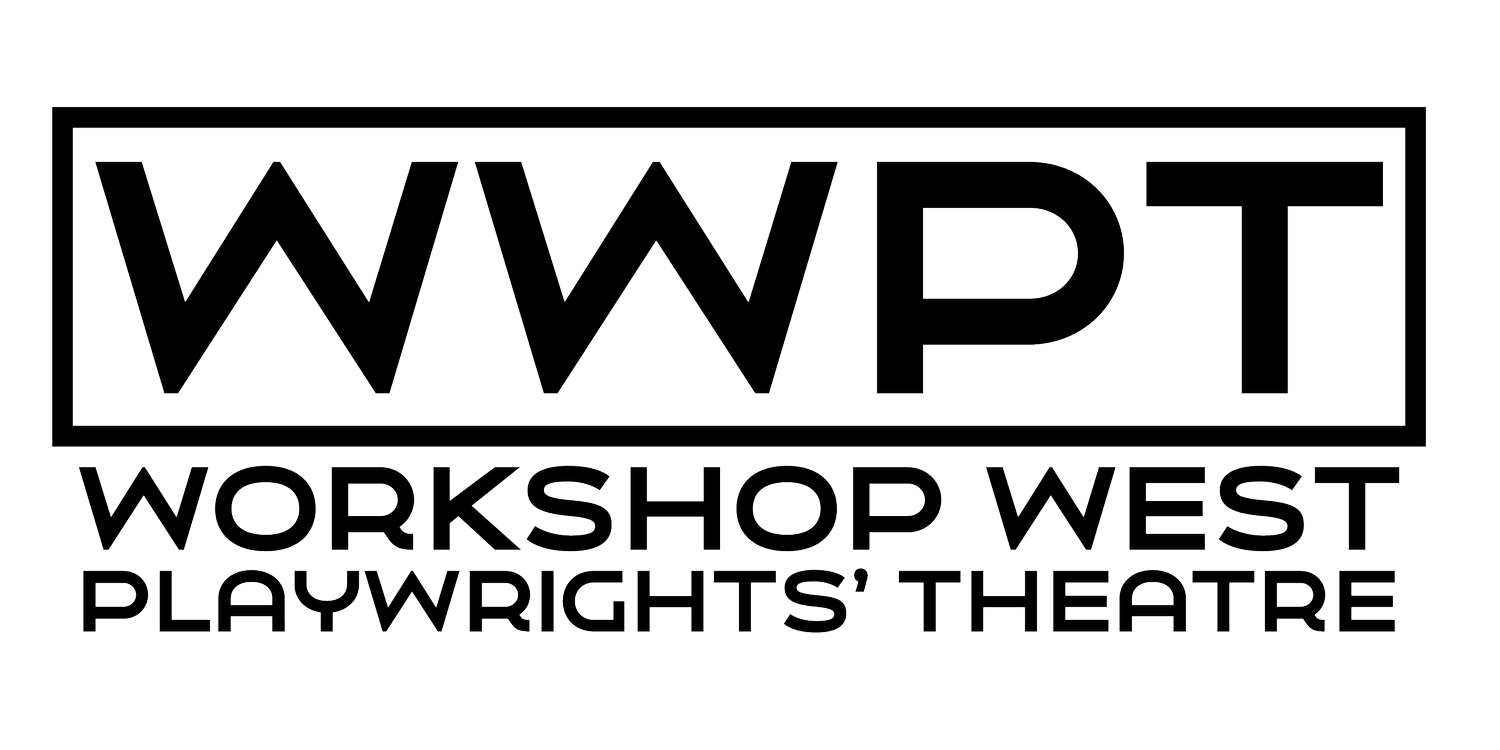Culture-Building
A Conversation with Ron Jenkins, Artistic Director 2003-2006
By Jonah Dunch
When Ron Jenkins became Workshop West’s third artistic director, he continued the company’s focus: creating opportunities to foster new work from Alberta playwrights.
“We’re nation-building, and we’re culture-building,” Jenkins says of Canadian play development theatres.
Ever since he’d discovered theatre in university, Jenkins had focused on new plays as an actor, dramaturge, and director. Hence, the move to Workshop West was a natural fit.
“I’d worked on a lot of new plays, but not in a structured environment, with a company that was mandated to do new work,” Jenkins says. “It was kind of where my career was moving me.”
On the new play front, Jenkins is particularly proud of Workshop West’s hand in developing significant works like Mesa, The Red Priest, Apple, and Mary’s Wedding.
But he’s also proud of having advocated for plays and playwrights the company didn’t produce. He says that if Workshop West didn’t take a promising play to production, the company made sure it got done somewhere else or got further development opportunities. Or, if a playwright’s work wasn’t quite ready yet, Workshop West found ways to help them hone their craft.
Under Jenkins’s tenure, the company introduced a program called the Playwrights’ Garage, which walked emerging playwrights through the play development process.
“I was so proud of that program because it took you from writing a play, and having a playwrights’ circle, and talking about your play, to understanding what the workshop process was, trying to advocate for your play, to work your play so that it gets done,” Jenkins says. “We established relationships with a lot of young playwrights.”
Furthering those relationships, Jenkins continued Workshop West’s Springboards Festival, which staged readings of local plays in development.
“People love to come to readings of new plays at their inception,” Jenkins says. “As a director, I got to get my hands dirty with the play. I got to figure out some things and ask some questions of the play that I never would have got to answer [in a normal production period.]”
On top of that, he started the Kaboom Series, which showcased artists from across the country, like Daniel McIvor and Theatre Smith-Gilmour, and gave local artists a chance to work with them.
“The Kaboom Series that I ran was an attempt at giving Edmontonians some experiences from Canadian theatre artists that they wouldn’t necessarily get a chance to see,” Jenkins says. “It was all about the Canadian playwright — and all about the Albertan playwright.”
Jenkins also developed a project called Secret Spaces, where six Edmonton playwrights wrote a show that travelled on a bus touring around the city. Jenkins fondly remembers a night of Secret Spaces when the bus pulled back up to the theatre where the Magnetic North Festival was ongoing. The night closed with a party for the Edmonton theatre community, which Jenkins describes as “a bunch of great people having a great time together.”
“It was one of those times when Edmonton—as it always has been—was this hotbed for theatre,” Jenkins says. “It’s an inclusive community, and it always has been. You can always call somebody and borrow something. You don’t always come by that, that is for sure.”
Case in point: Jenkins says he relied on the dedicated work of the board, volunteers, and staff, particularly his first General Manager, Shona Neil[JD1] , and stage manager, the late Cheryl Millikin.
“I could not have managed without [Millikan],” Jenkins says. “Her dedication to theatre, and to that theatre when I was there, was something I’ll never forget. And I’m not saying it because she died; I’m saying it because she’s missed.”
Of course, Jenkins’s tenure was not without its challenges. He says Workshop West struggled with identity and visibility. After the closure of the Walter Kaasa Theatre (a smaller house within the Jubilee Auditorium), Workshop West was left without a consistent venue to produce its works. And while the company found co-productions rewarding, these projects obscured Workshop West’s independent brand. Jenkins also thinks the Canadian inferiority complex makes audiences hesitant about Canadian work.
“You’re always trying to convince your audience that this is great work, period, full stop, whether you’re Canadian or not… just like they do in every other country on the planet,” Jenkins says. “It’s a play, and it’s a damn good one! It just happens to be written by somebody down the street.”
Moreover, Jenkins says, Workshop West faced the perennial challenges of money and time. The company raised money through bingos, often producing new work “by hook or by crook.” But despite these challenges, Jenkins focused on supporting playwrights and producing great work.
“The play’s the thing, and it always has been for me,” Jenkins says. “A good play is a good play is a good play… The stories are the things that are important.”
Jenkins left Workshop West after six and a half years at the helm, moving on to an accomplished career as a freelance director. Having done with the company what he had set out to do when he started, he felt ready to move on.
“I felt like there was no more for me to do at that company,” Jenkins says. “I felt like I needed to open the door for myself — and open the door for the next person to keep doing the work.”
And he thinks his successors have, indeed, kept doing the work of fostering new Canadian plays for Albertan audiences — as they will keep on doing.
“[Workshop West] will continue to develop the work of writers who need a home,” Jenkins says, pointing out that Workshop West will never be an A-house. “There are a lot of people who care about new stories — new Canadian stories.”


